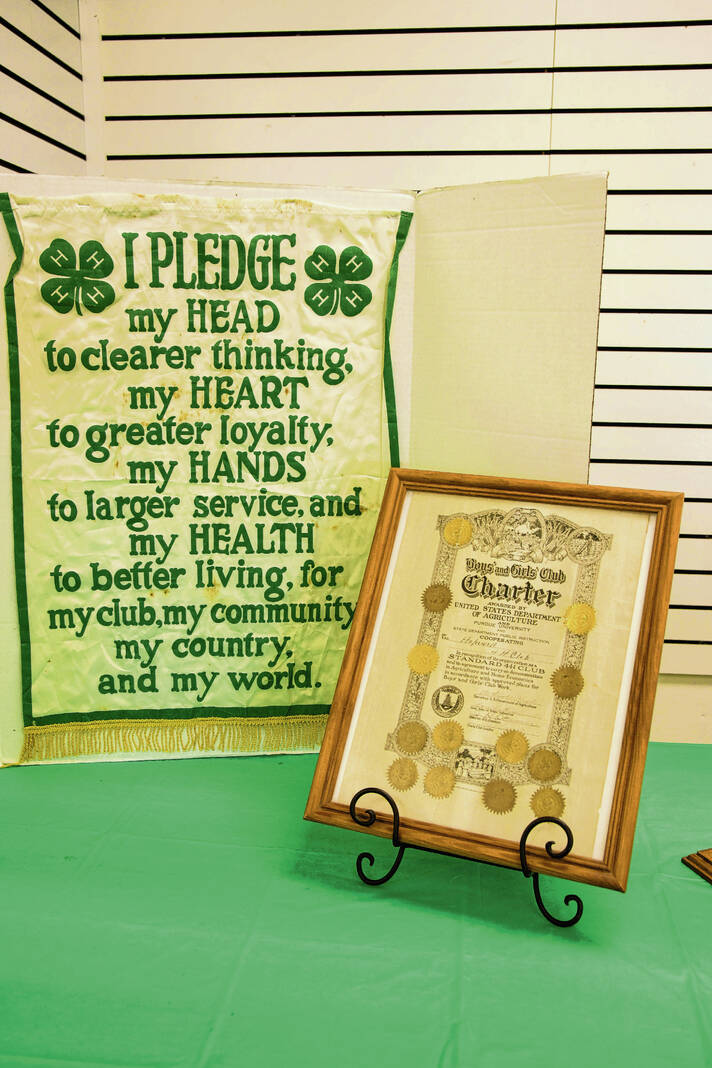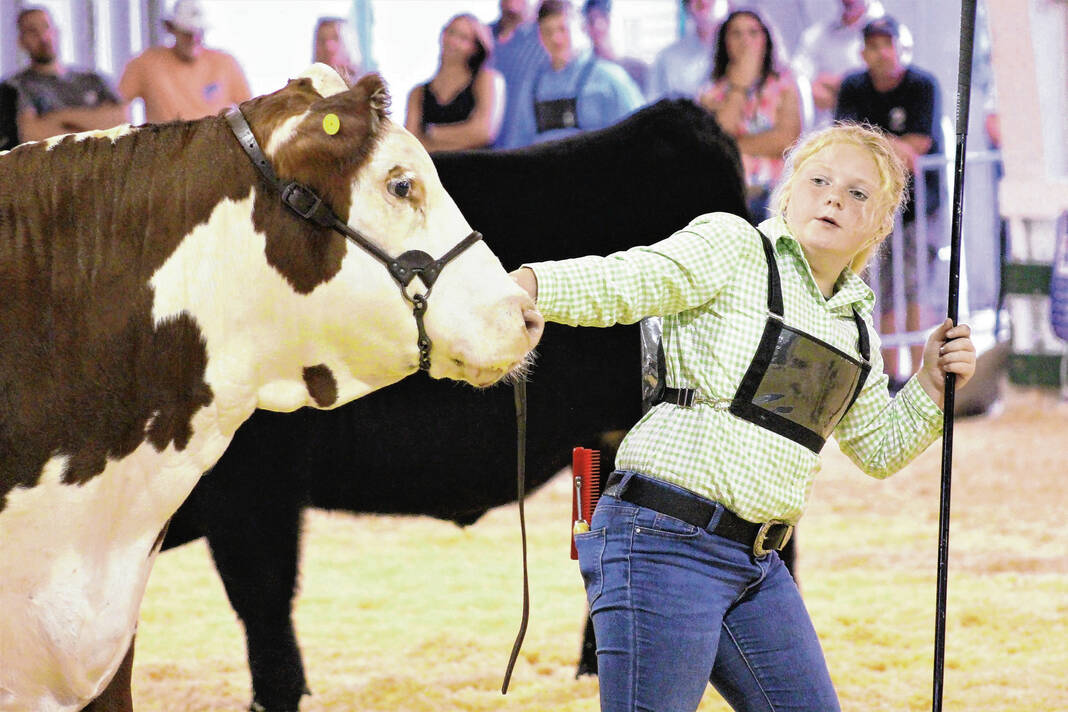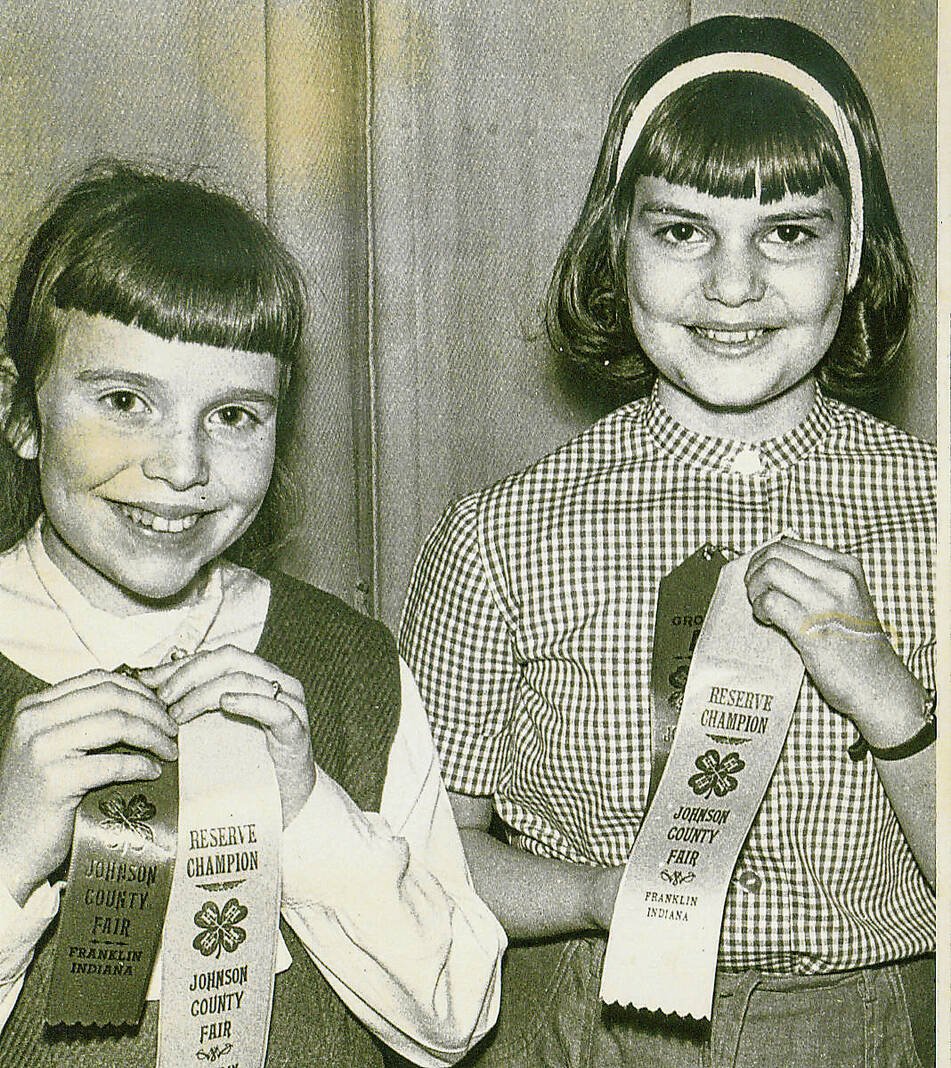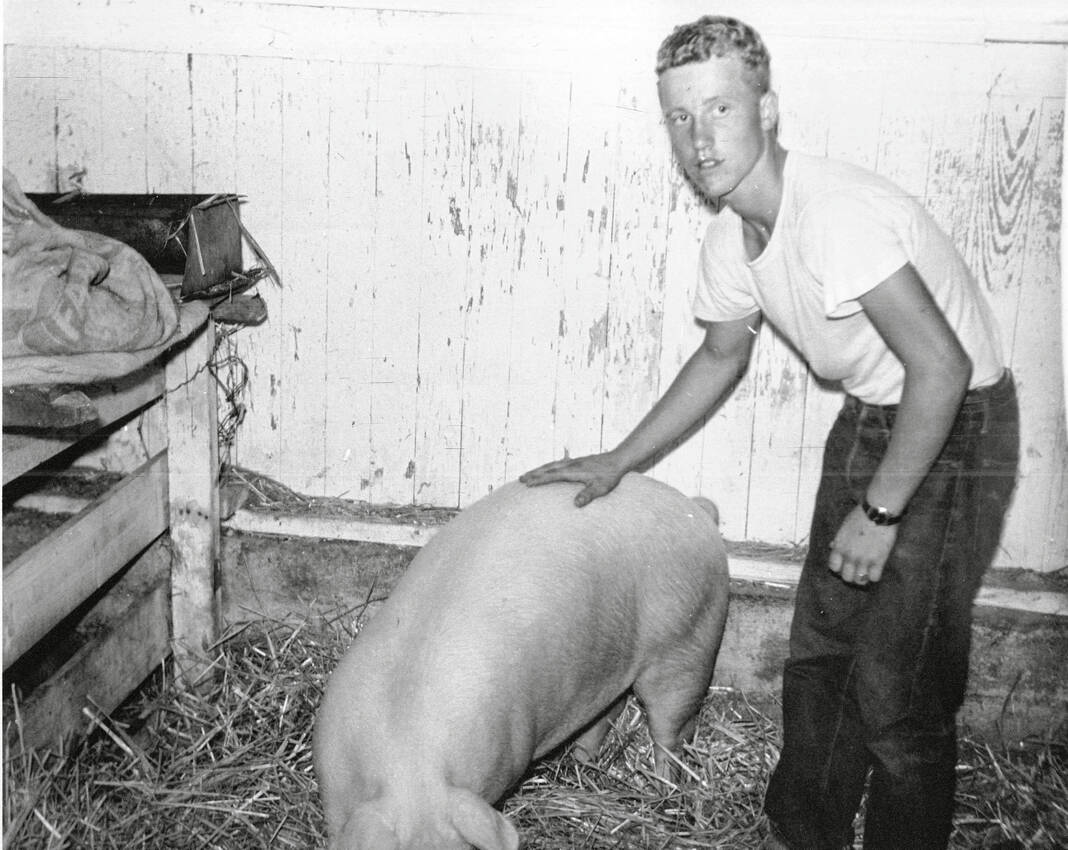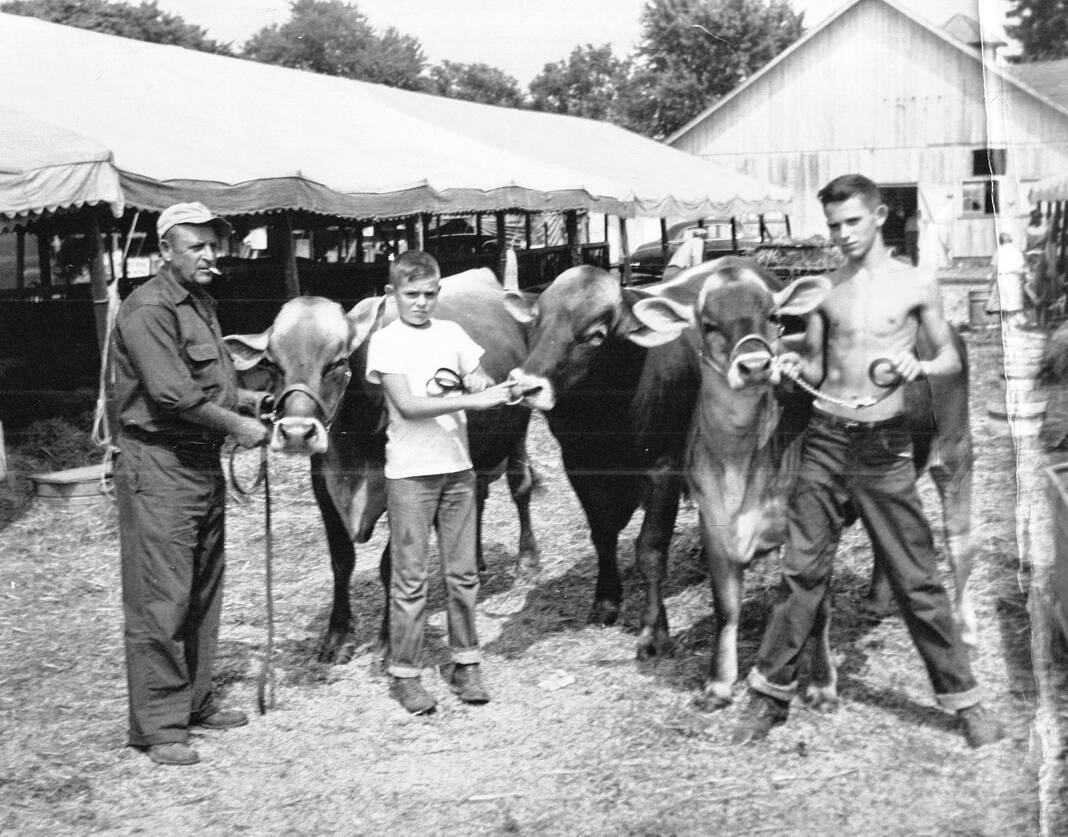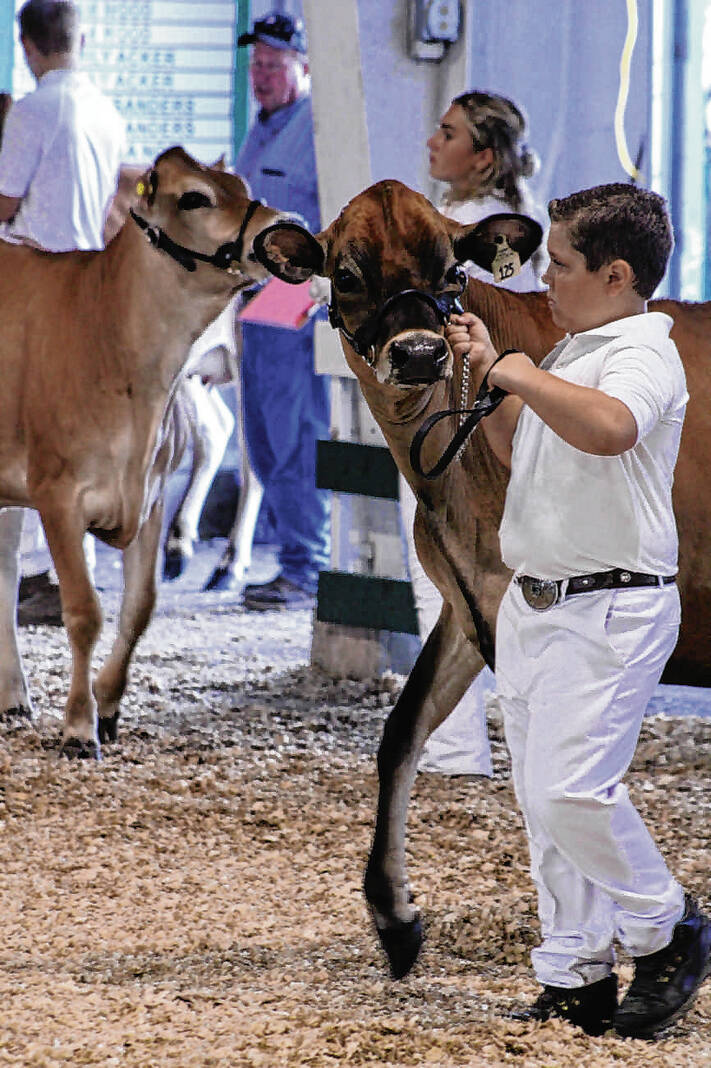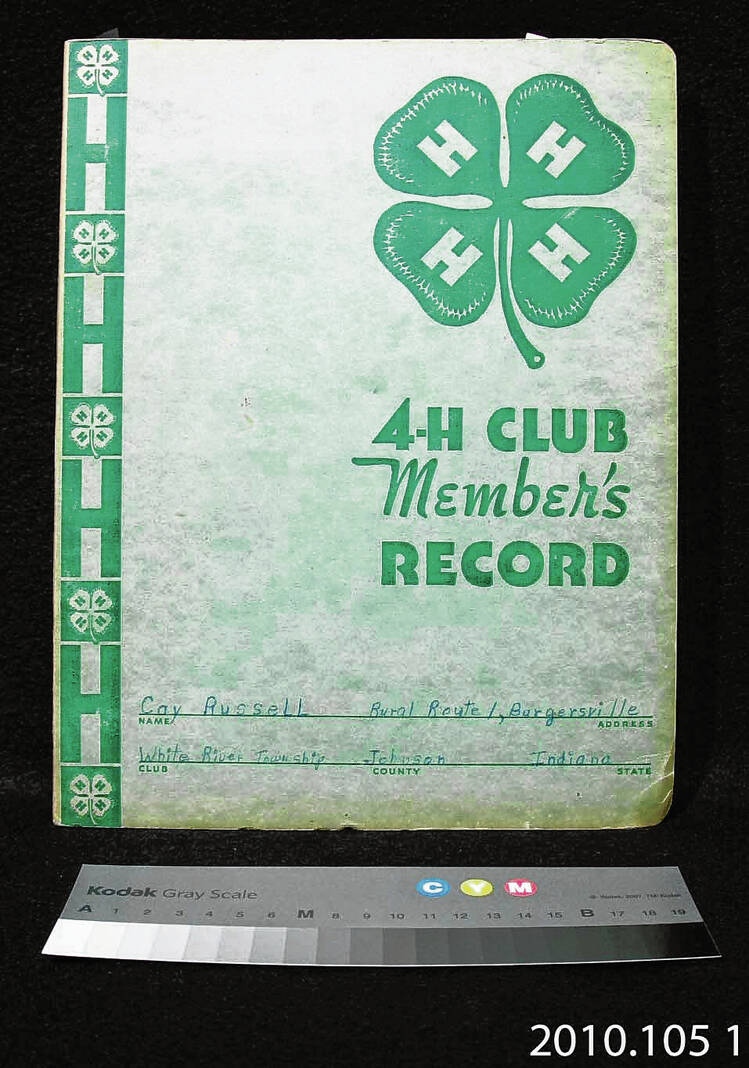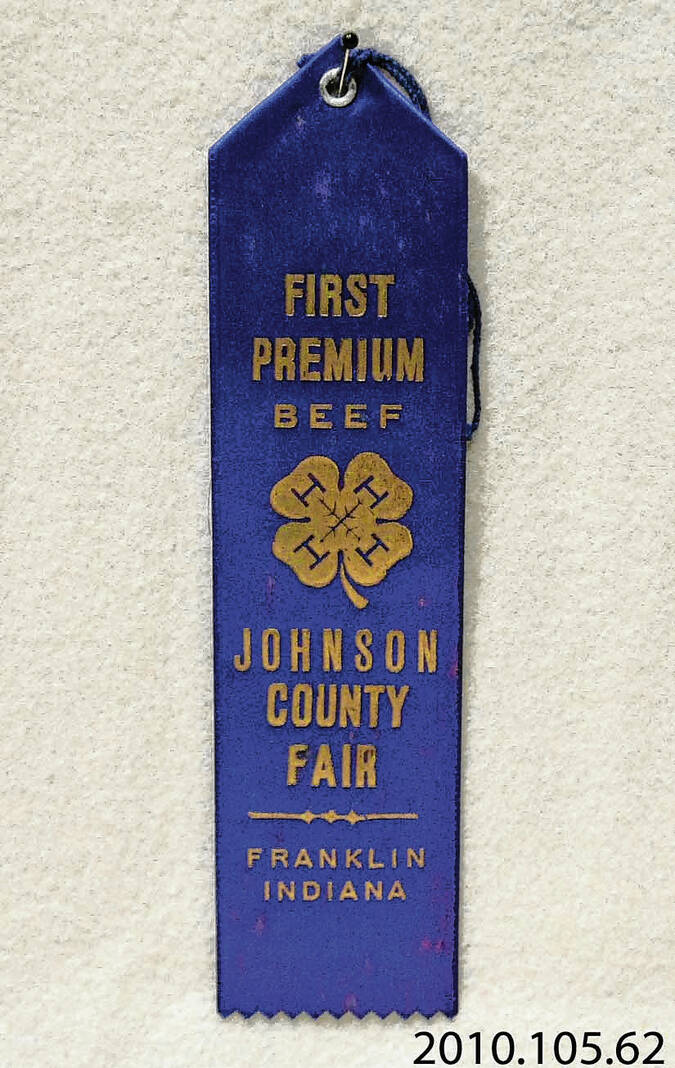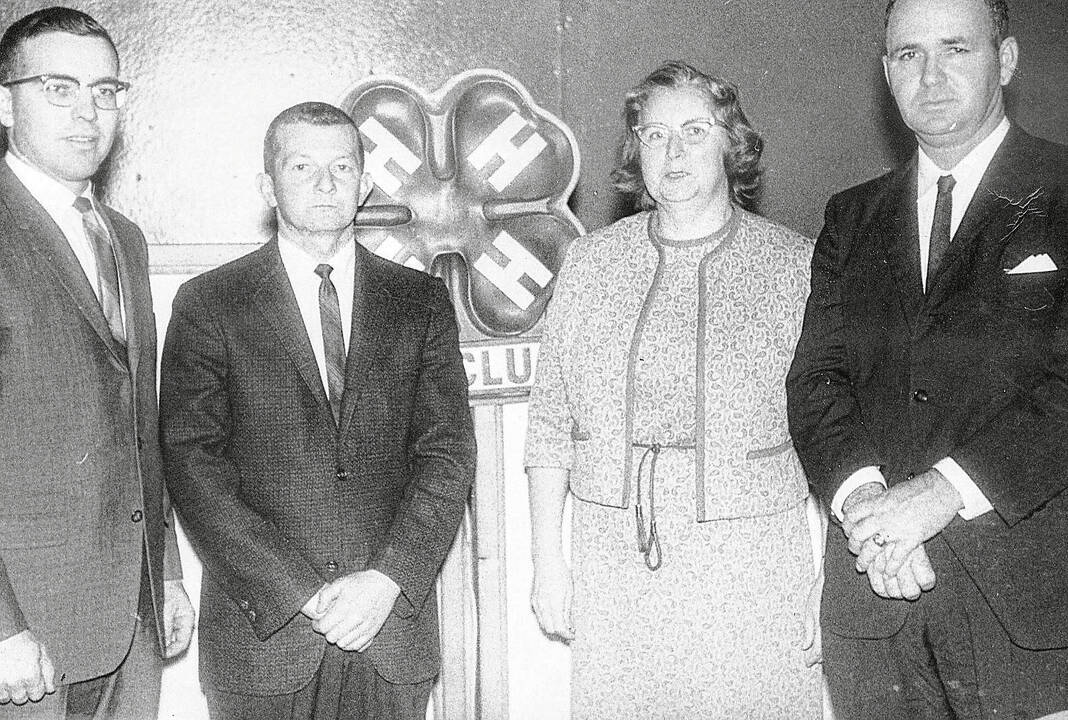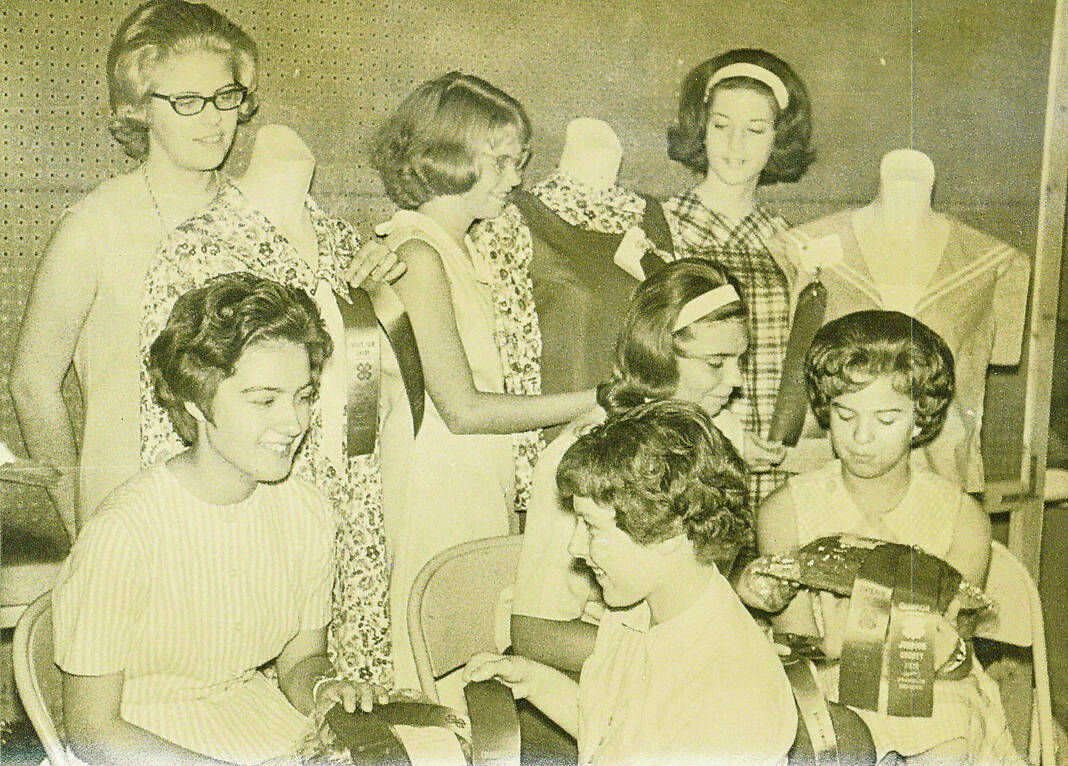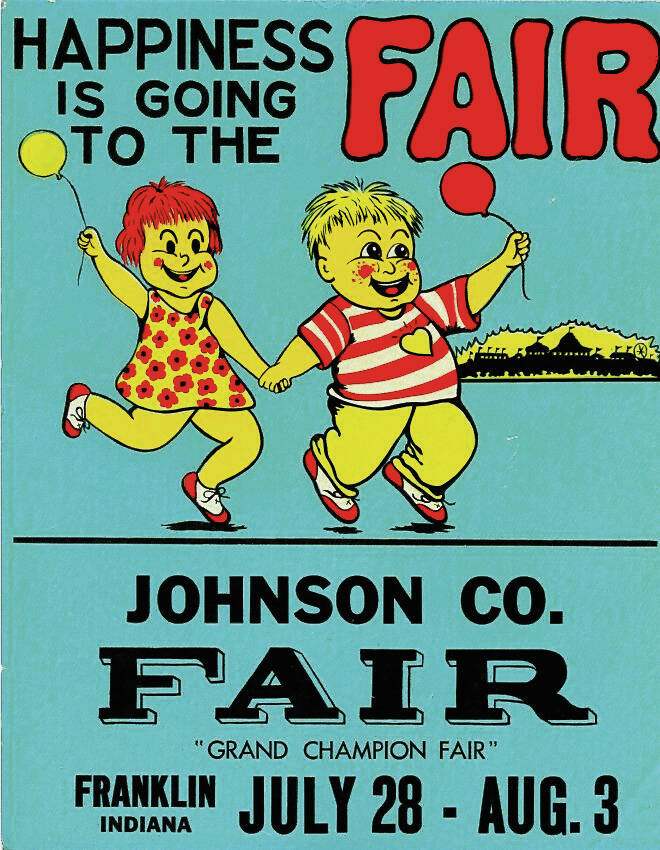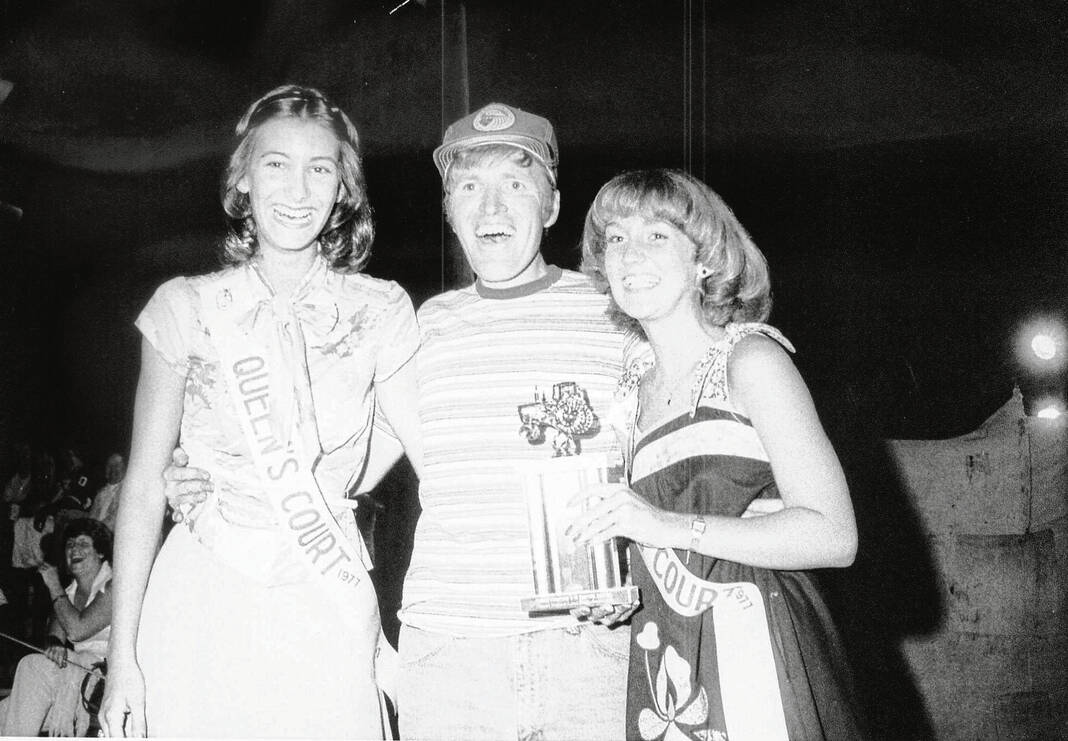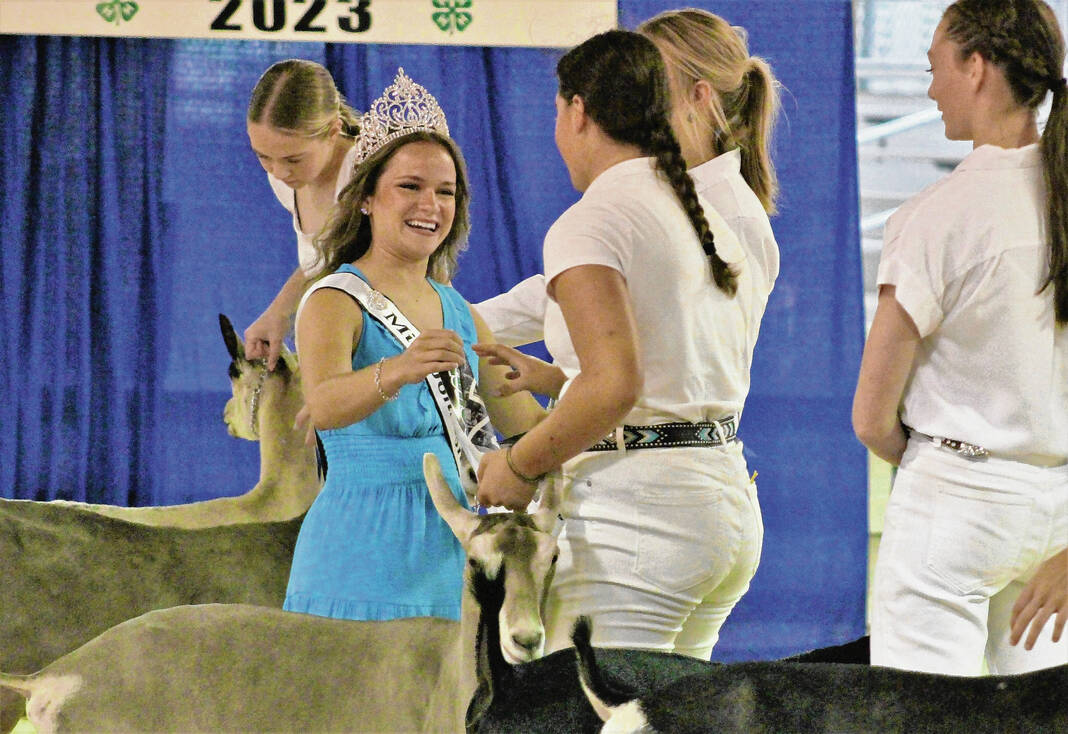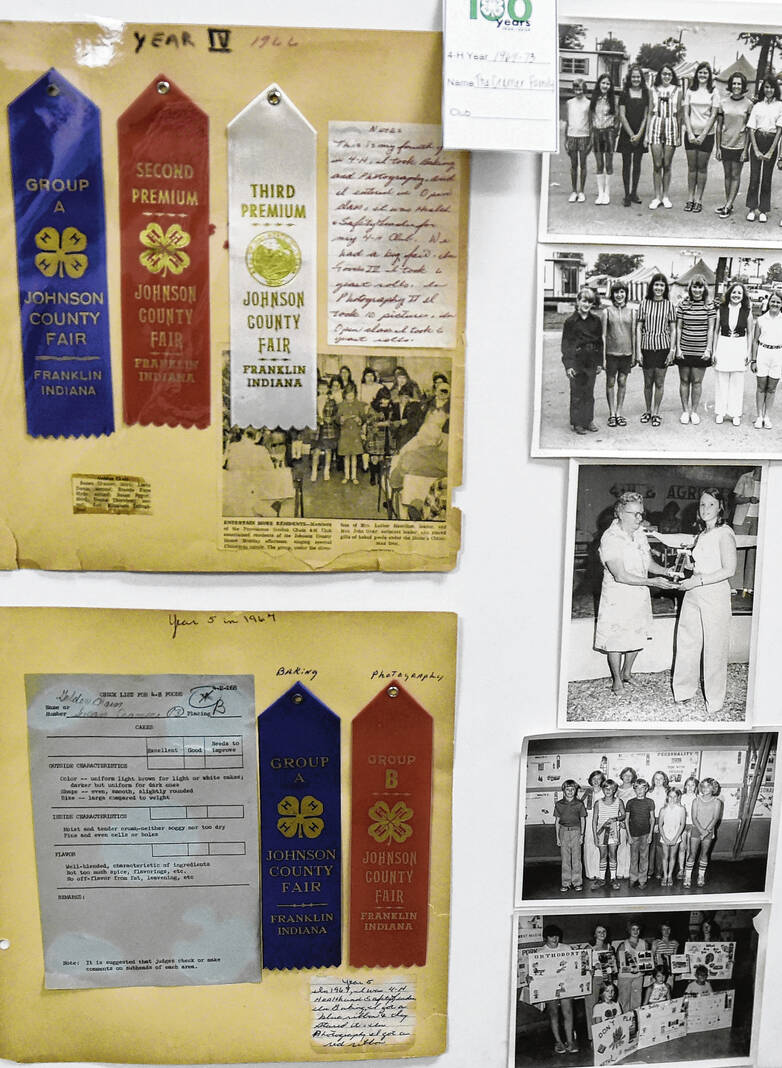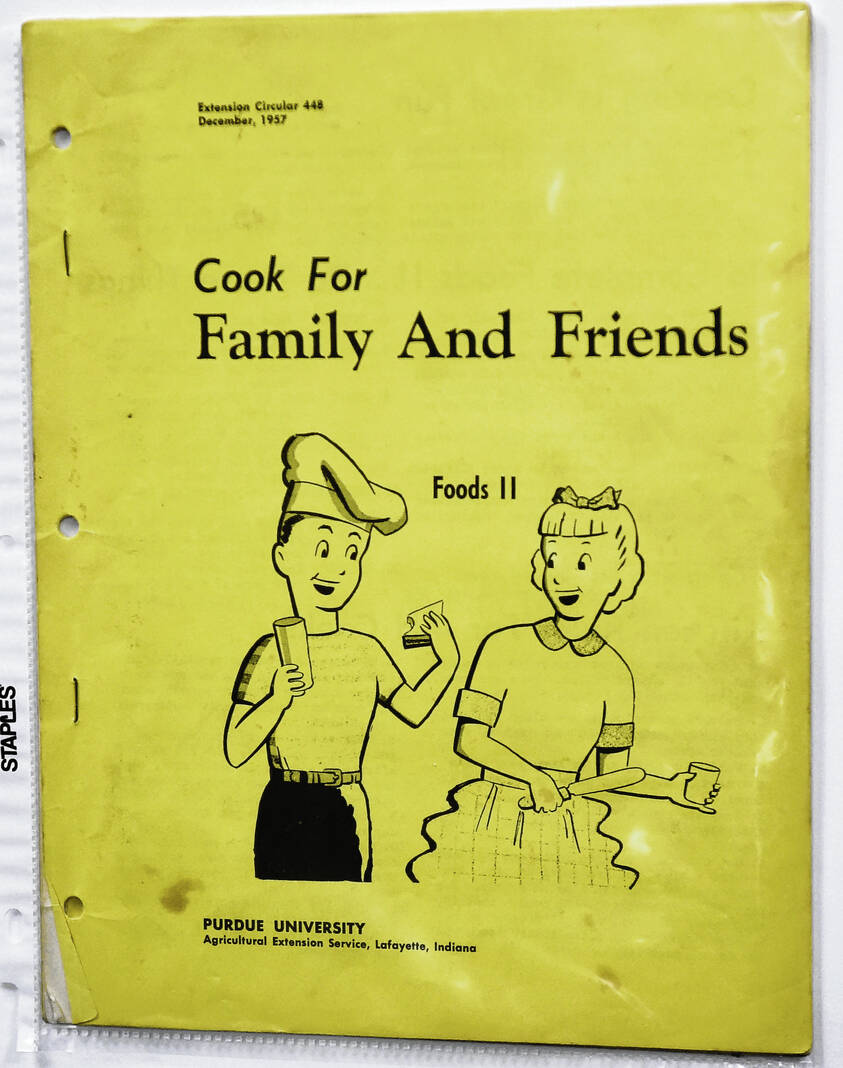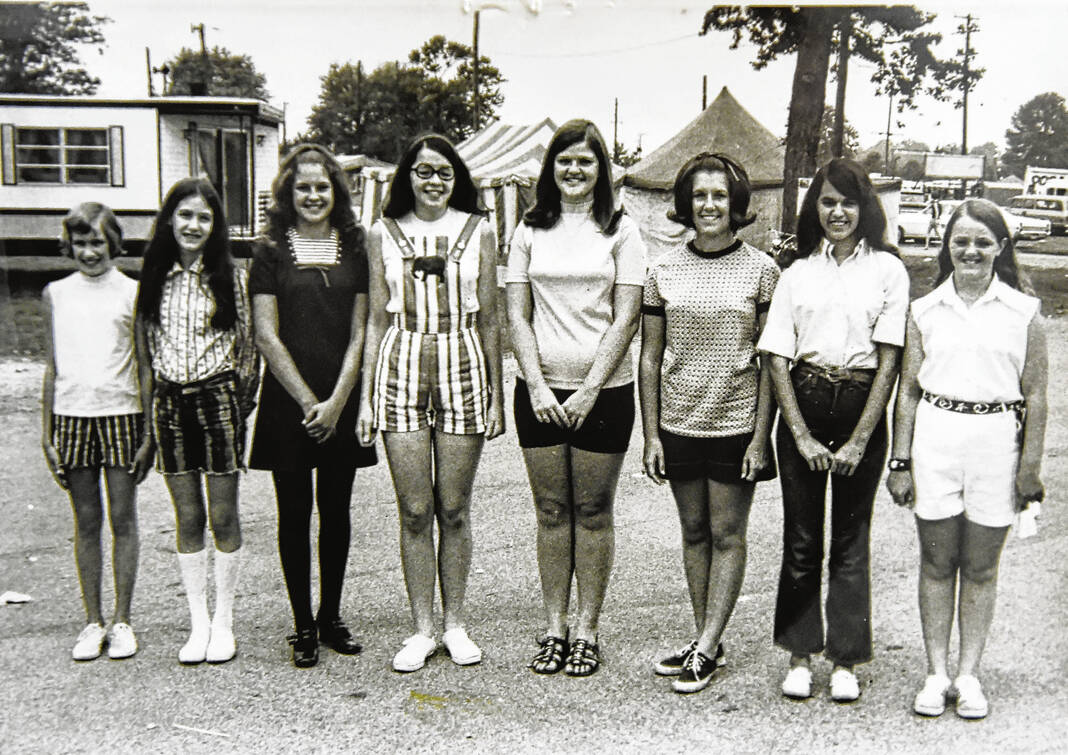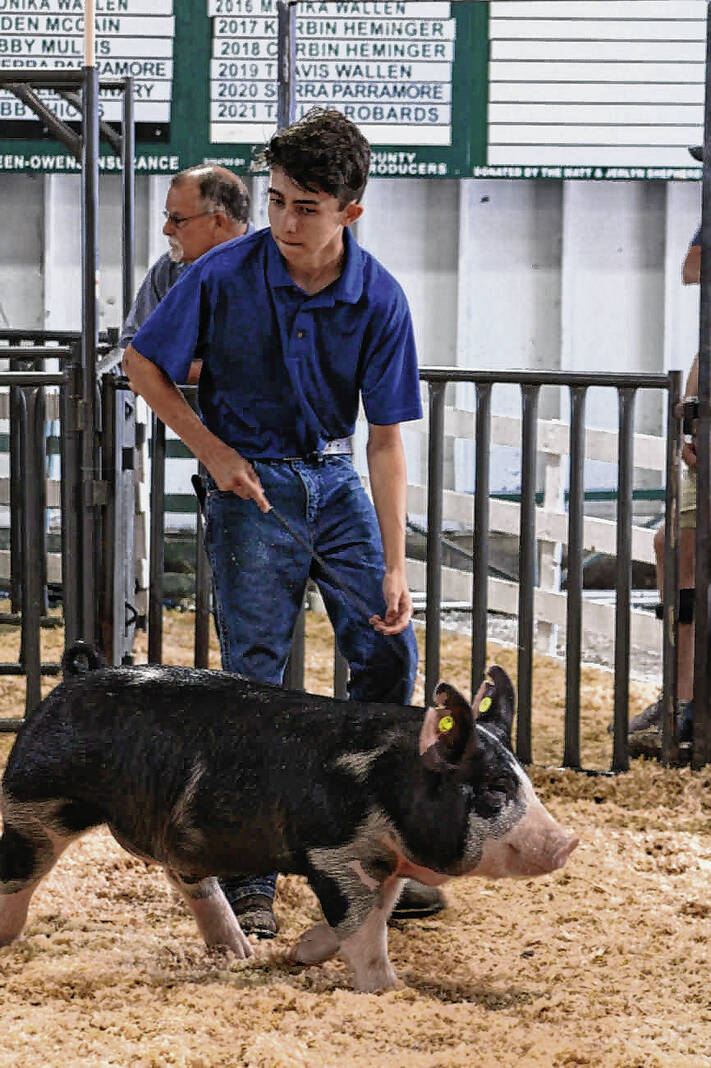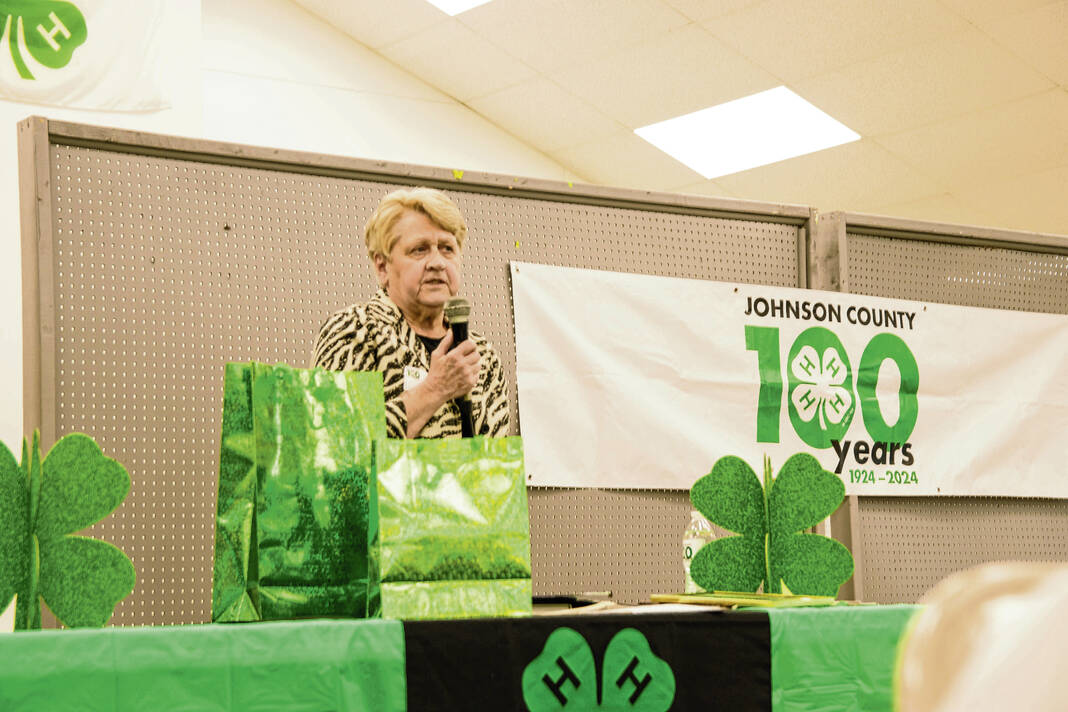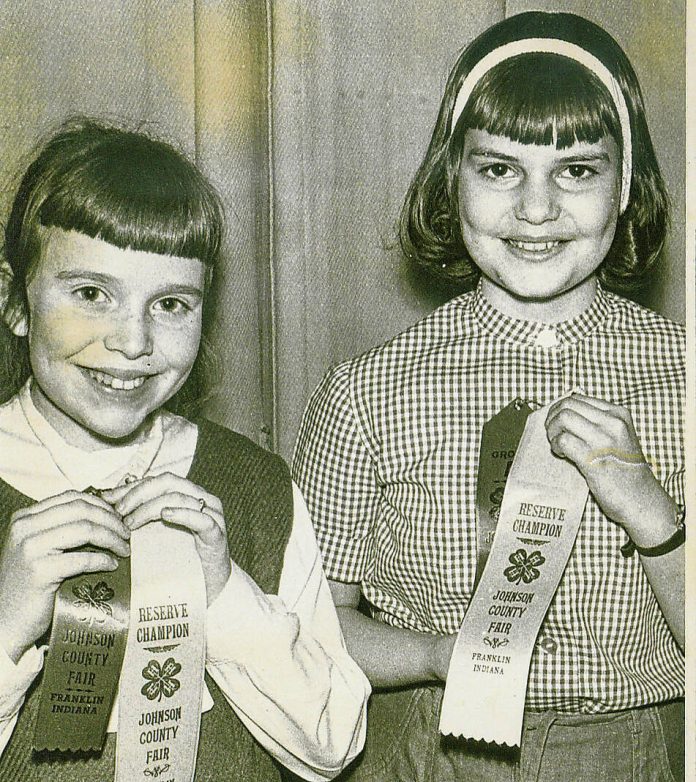
A pair of 4-H members show off the ribbons they won during the 1965 Johnson County Fair. 4-H is celebrating its 100th anniversary in Johnson County this year, with a 100 Year Celebration planned for 4 p.m. Sunday. PHOTO PROVIDED | JOHNSON COUNTY MUSEUM
On the surface, so much has changed.
When 4-H was formed in Johnson County in 1924, boys and girls were in separate clubs. Livestock competitions were held in tents instead of in permanent barns. Most of the county was farmland. Agriculture was universal.
But even after 100 years, the heart, determination and character of 4-Hers have remained as strong as ever.
“Johnson County, though once upon a time was very rural, it has grown and grown and grown. And yet, a lot of the kids still do livestock, where kids are still learning responsibility, keeping records, what they need and how to feed,” said Nancy Schuman, who spent more than 20 years as an extension educator in Johnson County. “They might be working with someone else’s animals at another farm, because they don’t have acreage, but they’re still learning those skills.”
With the Johnson County 4-H and Agricultural Fair kicking off this weekend, 4-H members past and present will come together to celebrate the organization’s centennial. “Rooted Into Tradition, Growing Into the Future” is the theme of the week, with special events, recognitions and mementos to celebrate the momentous event.
One such event is the 100 Year Celebration, set for 4 p.m. Sunday at Centennial Park on the fairgrounds.
Bringing together 100 years of history, seeing the organization evolve with the times but still maintain its core values, has made the past year truly special, organizers say.
“One hundred years of 4-H, it has really improved from where it first started. Everyone has new ideas and new talents to share and help it grow,” said Larry Vanderberg, a former 4-Her who served on the Johnson County Fair Board for 28 years, including as president.
4-H was founded in Johnson County in 1924, after the county was notified by Purdue University that it would be one of the counties chosen to establish trial clubs. One of the clubs was established in the Hopewell community, which had 23 members the first year.
Over the years, it has grown to be one of the largest youth organizations in Johnson County. 4-H today serves more than 1,200 kids each year. The group is active all over the county, and with the inclusion of Mini 4-H, reaches kindergarten to 12th grade. All areas of the county are represented, even those that no longer are as agriculturally focused as in the past.
“(Johnson County) started out being mostly rural, but 100 years ago, most of the country was mostly rural,” said Louise Beaman, whose family has been involved in 4-H in the county since it started. “They’ve continued to stay relevant by adding new projects. It’s more than cows and corn now.”
With so many people being a part of the organization, either as a member, a parent of a member, a group leader or just a supporter, 4-Hers share a bond that connects generations of county residents.
“My daughter one time said to me, whenever she’d meet someone who’s in 4-H, they had an automatic connection. They understand where each other comes from,” said Barb Dunn, a 4-H member whose children went through the program as well. “(4-H) is something you have to experience to know what it’s like.”
Dunn was a 4-Her when she was a girl growing up in the Center Grove area; her father had been in the organization and thought it would be good for his daughter.
Even at the time, 4-H was very similar to the way it is now.
“There were a lot of the same projects. But the things I remember most were the friendships I made, and the people I’m still friends with because of that,” she said.
The experience of being a 4-Her was amplified for many local participants once their own children joined the organization.
“Just to share some of those similar experiences and trips. There might be new projects, but it’s kind of the same as it used to be. You work hard on your projects, you turn it in, you see what you got and then you move in. It makes summer a special time,” Dunn said.
Participation in 4-H tended to carry on throughout members’ lives. Beaman was a 10-year 4-Her and her mother was a 4-H leader when the program started in the 1920s.
“She taught many of us how to sew here in the county,” she said. “So it’s been a lifelong love of mine.”
One of the great values of the 4-H program is the ability to expand your abilities and your horizons, Beaman said. She would participate in her favorite activities, such as sewing, but each year try to branch out into new projects.
Sometimes, what you learn is that it’s not really as exciting as you thought, she said. But other times she found new interests.
Over the years, Beaman has continued to be involved with 4-H, from serving on the local 4-H council and extension board to being the national chair of the Council for Agricultural Research, Extension, and Teaching.
“Not only does it teach a lot of the practical skills, but it also teaches a lot of the life skills. It teaches time management — you have to get that done by a certain time. It teaches record-keeping. It teaches to accept critique of your work, accept what the judge says and do what the motto says: ‘Always try to make the best better,’” Beaman said. “It teaches leadership, teamwork and responsibility.”
The experience was so positive that generations of her family have subsequently gone through the 4-H program — all of her children and grandchildren were 10-year 4-H members.
“And now we’re starting on the great-grandchildren,” she said.
Schuman grew up in Whitley County, where she was in 4-H for 10 years. After graduating from college, she was inspired to pursue a career in an extension office. Her first full-time post was in Wabash County’s extension program in 1967, which laid down the foundation for her job working with 4-H members and guiding them through the program.
She ended up working 32.5 years in extension, including 20.5 years in Johnson County. During her time, Schuman saw the value of what 4-H could do for young people.
“Learn by doing is the model. That’s what kids need to do — to experience the learning of things that aren’t necessarily in schools,” she said. “I grew up on a farm, so I knew some of these things when I was in 4-H. But to expand my cooking, baking, sewing, the electric projects, forestry, I did a variety of things to learn.
“At the time, I think I was just having fun. But looking back at it, learning those things that have become skills was important.”
Vanderberg grew up in Shelby County, showing dairy heifers in 4-H there. He moved to Johnson County when he was a freshman in high school, and continued to show dairy cows at the local fair.
His first experience was the Johnson County Fair was around 1960. At the time, they showed their animals in tents set up on the fairgrounds.
“It wasn’t like it is now — they’ve upgraded,” he said.
For him, 4-H was all about learning. All of Vanderberg’s five children were 10-year 4-H members, including three who won county fair queen. With the expanded offerings of the program, from STEM to gun safety to computers, 4-H has value.
“Every kid ought to be in 4-H,” he said.
The centennial celebration for 4-H started during last year’s county fair, starting with the creation of the JoCo 100 Club. Open to all current 4-H families, 4-H alumni, businesses, supporters, volunteers or simply anyone who loves 4-H, the club offers people the chance to further support future young people in 4-H.
Organizers put together a centennial block party in October 2023 which featured food trucks, live music, bounce houses and more. A Centennial Historic Reception was held in March, featuring memorabilia from over the decades. Speakers, including Schuman, were invited to share their memories of the 4-H program.
“I’m excited they’re taking on the opportunity to celebrate what 4-H was and what it’s become,” she said.
The 100 Year Celebration will feature special guests, refreshment and entertainment. Organizers plan to open a time a time capsule that is buried at Centennial Park and replace it with a new time capsule.
All of the festivities have made the start of this year’s fair even more special than usual.
“The fact that something like that has kept going for so long is wonderful,” Dunn said.
IF YOU GO
100 Year Celebration
What: A special community event celebrating 100 years of 4-H in Johnson County, with special guests, entertainment and refreshments. A time capsule will be unearthed, and a new capsule put in its place.
When: 4 p.m. Sunday
Where: Centennial Park, east of Magill Hall, Johnson County fairgrounds, 250 Fairgrounds St., Franklin. The rain location will be the Indoor Arena.
Who: The event is open to the public.


